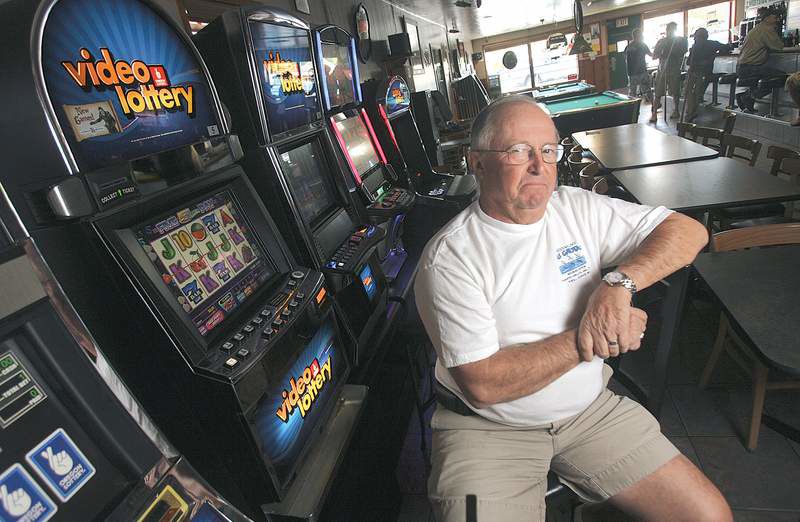Businesses hope to hold on to lottery payouts
Published 5:00 am Friday, October 30, 2009

- Ken Weston, owner of the Westside Tavern in Bend, said earlier this year that he would seriously consider pulling lottery machines out of his bar if the Oregon Lottery Commission reduces his cut of video lottery proceeds any further.
SALEM — Sam Burns, the owner of The Boss’ Office in Redmond, hopes to find out today how much his bar’s video lottery machines are worth.
This morning, in a closely watched vote, the Oregon Lottery Commission is expected to decide whether to cut the commission earned by bars and taverns on their machines. The vote will be on whether to renew the state’s six-year contract with lottery retailers, mainly taverns and bars.
Education advocates have pushed to cut the average retailer commission from nearly 24 percent to 16 percent, saying that schools don’t receive a big enough cut of lottery earnings.
Burns doesn’t like the idea.
Last year, he earned $76,343 with his five machines, according to Lottery records. But this year, the flow of customers, and gamblers, has slowed. Earlier this week, he dropped his prices on beer and liquor, and he’s even started a second job delivering Little Debbie baked goods.
“I’m barely holding my head above water,” he said.
On Monday, Burns’ odds of keeping his lottery-based income intact improved. That’s when Dale Penn, the Lottery’s director, released a written recommendation that bars and taverns should keep the same portion of profits, an average of about 24 percent.
Penn argued that reducing the commission would be too risky and could even cost the state money by reducing the number of video lottery machines in circulation if businesses either take them out or go out of business.
Already, lottery earnings are way down, a trend attributed to the economy and the smoking ban that went into effect Jan. 1.
The Lottery’s earnings this year dropped from $895 million to about $787 million.
Penn’s recommendation is not binding; rather, it requires a vote of the Lottery Commission’s five members, who are appointed by the governor.
On Thursday, the eve of the meeting, those advocating more money for schools said they haven’t given up. The commission is slated to vote on a six-year contract, but the opponents want the contract’s term reduced to two or three years, allowing the topic to be revisited once the recession has ended.
“We would hope that they don’t move forward on an irresponsible six-year contract that locks in rates that are too high,” said Dana Hepper, a lobbyist for the group Stand for Children.
Gretchen Stroup, the owner of The Gallery Restaurant and Bar in Sisters, said she’d be OK with a contract of just three years, but she’s hoping the Lottery keeps the commission the same.
She said her business is not in danger of folding, but the reduced lottery revenue this year has caused her to cut back on the restaurant’s weekend staffing.
“I’m for keeping it the way it is and allowing the retailers to keep what they can, especially if it means keeping them in business,” she said of the commission rate.
The average take on video lottery proceeds has dropped from 35 percent in 1992 to the current average of nearly 24 percent. Under the current contract, retailers keep 27.5 percent of the first $175,000 in sales; the portion declines as their total sales go up.
Retailers are limited to six machines per venue, and the average take per retailer is about $70,000, according to the Lottery, down from about $82,000 the year before.
According to Penn’s recommendation, education received $967 million in lottery revenues during the past two years, while $216 million was spent on economic development and $198 million on parks and watersheds.
The commission meeting starts at 10 a.m. at the Lottery’s Salem headquarters.






